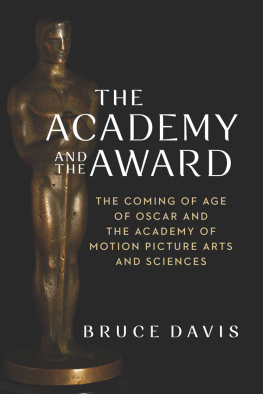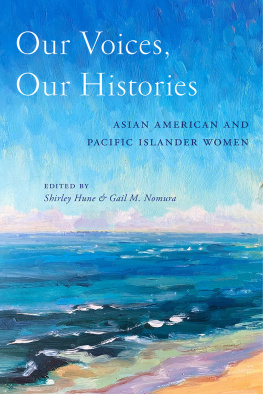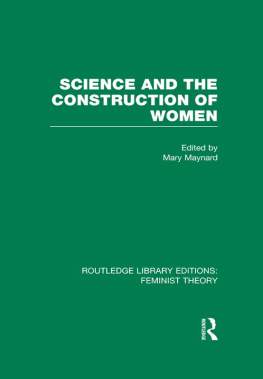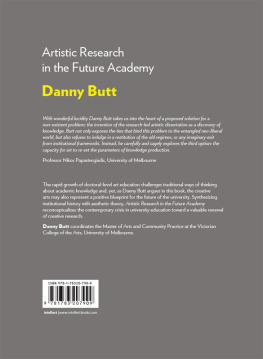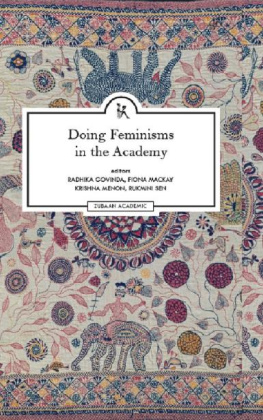The Edge: Critical Studies in Educational Theory
First published in 1999 by Westview Press
Published in 2021 by Routledge
605 Third Avenue, New York, NY 10017
2 Park Square, Milton Park, Abingdon, Oxon OX14 4RN
Routledge is an imprint of the Taylor & Francis Group, an informa business
Copyright 1999 by Taylor & Francis
All rights reserved. No part of this book may be reprinted or reproduced or utilised in any form or by any electronic, mechanical, or other means, now known or hereafter invented, including photocopying and recording, or in any information storage or retrieval system, without permission in writing from the publishers.
Notice:
Product or corporate names may be trademarks or registered trademarks, and are used only for identification and explanation without intent to infringe.
Library of Congress Cataloging-in-Publication Data
Everyday knowledge and uncommon truths : women of the academy / edited
by Linda K. Christian-Smith and Kristine S. Kellor.
p. cm.(The edge : critical studies in educational theory)
Includes bibliographical references and index.
ISBN 0-8133-3460-8 (hc). ISBN 0-8133-3461-6 (pb)
1. Women college teachersBiography. 2. Women college
administratorsBiography. 3. Feminism and education. 4. Critical
pedagogy. 5. Discourse analysis. I. Christian-Smith, Linda K.
II. Kellor, Kristine S.
LB2332.3.E84 1999
378.12082dc21
9827912
CIP
ISBN 13: 978-0-3670-1047-8 (hbk)
ISBN 13: 978-0-3671-6034-0 (pbk)
DOI: 10.4324/9780429040337
Contents
Series Editors Foreword, Shirley R. Steinberg
Acknowledgments
Introduction
, Carmen Luke
2 Unsettling Academic/Feminist Identity, Jennifer Gore
3 Her-story: Life History as a Strategy of Resistance to Being Constituted Woman in Academe, Kristine S. Kellor
4 Strangers in a Strange Land: A Woman Studying Womens Literacies, Linda K. Christian-Smith
5 The Backlash Factor: Women, Intellectual Labour and Student Evaluation of Courses and Teaching, Magda Lewis
6 Can Feminist Voices Survive and Transform the Academy? Ava L. McCall
7 Deconstructing Feminist Pedagogy: Seeing That Which Is Ordinarily Obscured by the Familiar, Janice Jipson and Petra Munro
8 Asian Women Leaders of Higher Education: Stories of Strength and Self Discovery, Lori M. Ideta and Joanne E. Cooper
9 Dancing on the Sharp Edge of the Sword: Women Faculty of Color in White Academe, Frances V. Rains
10 Negotiating Daily Life in the Academy and at Home, Jean I. Erdman
11 Feeling Blue, Seeing Red, and Turning Fifty: Moving in from the Margins, Sue Middleton
12 Against the Grain: Reflections on the Construction of Everyday Knowledge and Uncommon Truths, Linda K. Christian-Smith and Kristine S. Kellor
- Series Editors Foreword Page
- Acknowledgments Page
- Introduction Page
- 2 Unsettling Academic/Feminist Identity
- 3 Her-story: Life History as a Strategy of Resistance to Being Constituted Woman in Academe
- 4 Strangers in a Strange Land: A Woman Studying Womens Literacies
- 5 The Backlash Factor: Women, Intellectual Labour and Student Evaluation of Courses and Teaching
- 6 Can Feminist Voices Survive and Transform the Academy?
- 7 Deconstructing Feminist Pedagogy: Seeing That Which Is Ordinarily Obscured by the Familiar
- 8 Asian Women Leaders of Higher Education: Stories of Strength and Self Discovery
- 9 Dancing on the Sharp Edge of the Sword: Women Faculty of Color in White Academe
- 10 Negotiating Daily Life in the Academy and at Home
- 11 Feeling Blue, Seeing Red, and Turning Fifty: Moving in from the Margins
- 12 Against the Grain: Reflections on the Construction of Everyday Knowledge and Uncommon Truths
Guide
- Series Editors Foreword Page
- Acknowledgments Page
- Introduction Page
Series Editors Foreword
So much to say, so many voices using everyday knowledge, the authors of this book collectively and individually discover and reveal truths. Decidedly female, their records and life histories dance above the page forming a union of the themes within the collective consciousness of women in the academy. Using the lived world as curriculum, these scholars uncover the layers which have accumulated into the stories we are reading. *A caution to the reader, we must always be aware that the stories (even though they are in print) are not stagnant and finalthey are tentative and fluid, subject to change and re-group as life is lived and interpreted.
Each author is aware of her positionality as she choreographs the pages to express her thoughts and actions. She is aware that we have been living, as Carmen Luke mentions, in new times. These are times in which we are carrying forward and developing the messages of third and fourth wave feminism. The stories come to us with the agonies and ecstasies of girl/woman/academic-hood. Melding theory with life history, this book exemplifies successful rigor in scholarship. The authors clearly are able to fuse intricate feminist and critical theory equally with a pedagogical and affective recognition of nurturance.
When we re-tell and re-form our life stories as women in and outside of the academy, I caution the adoption of the voice of victim. Empowerment and equity do not result from our victimization; they result from our own self-analysis and theoretical frameworks and the actions we take in light of them. Naturally, we acknowledge and name our sufferingsbut we must beware the traps of essentialism with its comparative suffering. I believe that as we discover ourselves as women and scholars, we must also study and position everchanging/mutating masculinity. To reduce masculinity to the status of enemy lessens the validity of our ability to view and make sense of the world. Naturally, we eschew the absurd notion of masculine mandated objectivity in our lives/research/ careerswe celebrate subjectivity and recognize it for the bias and history it carries.
When I revisit my own growth, first as a girl and then as a woman scholar, I position myself and the academy in a way in which I am able to heal and grow through critical critique and the knowledge of how power works. I recall during the pursuit of a Masters degree, my personal confrontation with many of the issues dealt with in this book. My voice was silenced and ethics ignored by university administrators regarding my major professors sexual harassment/blackmail of me (subsequently he was promoted to Dean of Education). I am able to reflect with a healthy shade of cynicism that indeed, my naivet as a student led me down paths that did not guide me to an understanding of the patriarchal hegemonic tentacles that pervade the everyday life of colleges. I am now able to use my experience to help other women and marginalized people identify power dynamics and to protect themselves. I understand dominant culture and do not allow myself the luxury of thinking that just this once it wont affect me.



